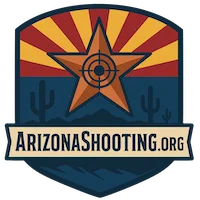
Polytech AKS-47 equipped with a Dead Air Wolverine provided by SilencerCo. IMG Jim Grant
The United States House of Representatives has passed President Donald Trump’s “One Big Beautiful Bill” without removing suppressors, short-barreled rifles (SBRs), short-barreled shotguns (SBSs), and any other weapons (AOWs) from the National Firearms Act of 1934 (NFA). Although the items will still require NFA registration, the making and transfer taxes have been dropped to $0.
The fight started in the House, where the House Committee on Ways and Means passed the reconciliation bill with a $0 tax stamp for suppressors. When it went to the floor, a manager’s amendment removed suppressors from the NFA. That is known as section 2 of the Hearing Protection Act. Notably absent was the Stop Harassing Owners of Rifles Today (SHORT) Act. That act removes SBRs, SBSs, and AOWs from the NFA. The bill was passed by the House and moved to the Senate.
In the Senate, after a torrent of public pressure, Republicans added section 3 of the HPA to the “One Big Beautiful Bill.” Section 3 is state-level protection for suppressors. Republicans also added the SHORT Act.
The bill was submitted to the Senate parliamentarian, Elizabeth MacDonough. The Democrat determined the provision violated the Byrd Rule. The Byrd Rule says that only budgetary items, such as taxes, can be changed through the reconciliation process.
Senate Majority Leader John Thune (R-SD) could have chosen to disregard the parliamentarian’s advice and retained the original language. He could have also decided to fire Ms. MacDonough from her position. The parliamentarian serves at the pleasure of the Senate Majority Leader. Ms. MacDonough was appointed to the position in 2012 by then Senate Majority Leader Harry Reid, who served under President Barack Obama. Sen. Thune decided to do neither, angering House members.
The Senate version was sent back to the House for further consideration. Rep. Andrew Clyde (R-GA) attempted to amend the reconciliation bill to reinstate both the SHORT Act and the HPA, but his effort was unsuccessful. The bill would advance to the House floor, where it would pass on a mostly party-line vote with Republicans Thomas Massie and Brian Fitzpatrick crossing the aisle to vote with their Democrat colleagues against the bill’s passage. The bill now heads to President Trump’s desk for his signature.
The disregard for the HPA and SHORT Act enraged gun rights activists. Multiple lawsuits were announced shortly after the bill’s passage. The Second Amendment Foundation (SAF), the Firearms Policy Coalition (FPC), and the American Suppressor Association (ASA) are filing a lawsuit. A second lawsuit is being filed by Gun Owners of America (GOA), Firearms Regulatory Accountability Coalition (FRAC), Palmetto State Armory (PSA), and Silencer Shop. Although the lawsuit content is not public, a $0 tax could be constitutionally dubious.
According to a 1937 United States Supreme Court ruling, the NFA is a tax. A tax must have a revenue-generating purpose. A $0 tax does not raise any revenue. That distinction puts it at odds with the United States Constitution. It is logical to assume that gun groups will pursue this avenue of attack in their lawsuits.
The $0 tax stamp will go into effect 90 days after the President signs the bill.
About John Crump
Mr. Crump is an NRA instructor and a constitutional activist. John has written about firearms, interviewed people from all walks of life, and on the Constitution. John lives in Northern Virginia with his wife and sons, follow him on X at @crumpyss, or at www.crumpy.com.

Continue reading...



